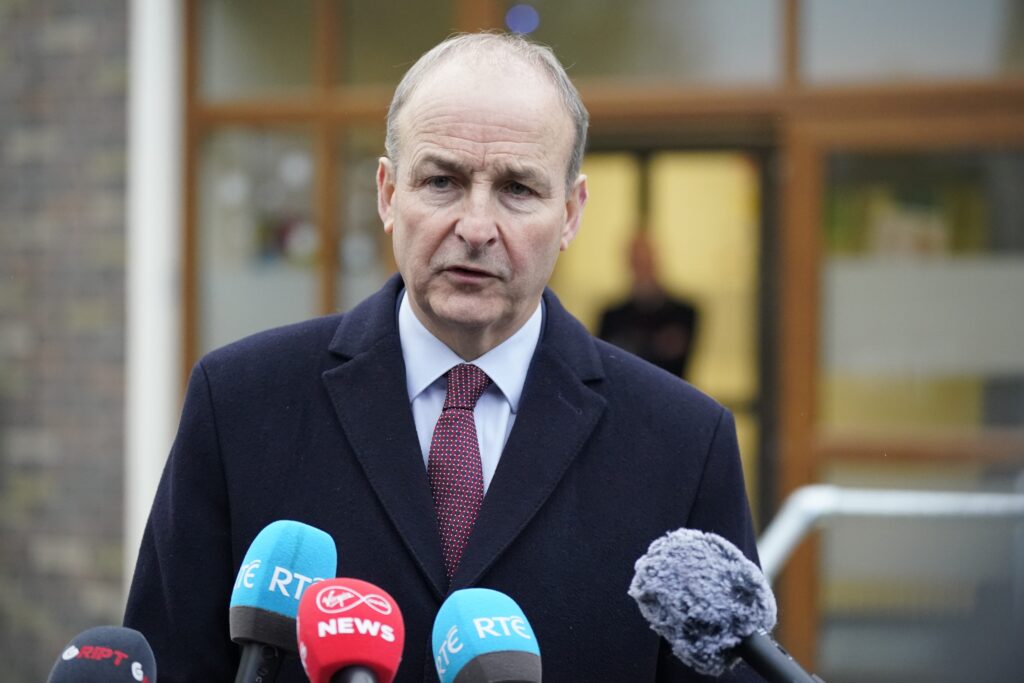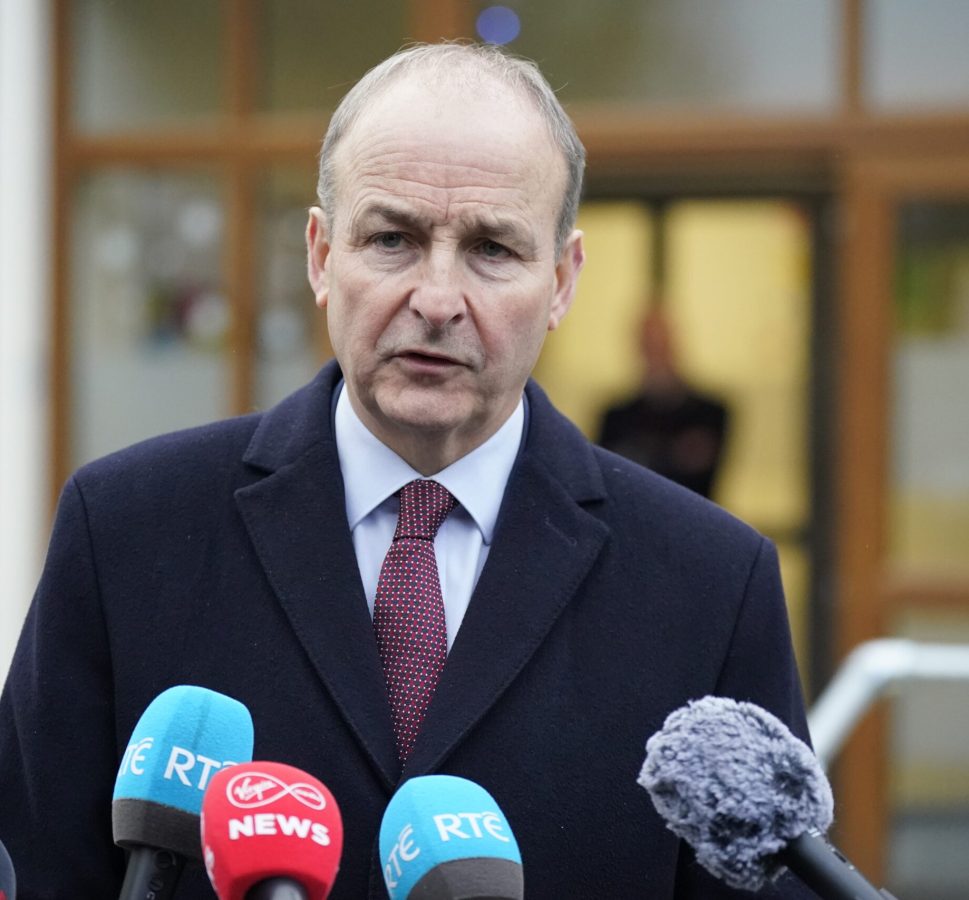
Irish Foreign Minister Micheal Martin says events in Gaza represent the ‘blatant violation of international humanitarian law on a mass scale’.
Ireland has said it will intervene in South Africa’s genocide case against Israel, in the strongest signal yet of Dublin’s concern about the war in Gaza.
Announcing the move, Foreign Minister Micheal Martin said on Wednesday that while it was for the International Court of Justice (ICJ) to decide whether genocide was being committed, he wanted to be clear that Hamas’s October 7 attack and current events in Gaza represent the “blatant violation of international humanitarian law on a mass scale”.
“The taking of hostages. The purposeful withholding of humanitarian assistance to civilians. The targeting of civilians and of civilian infrastructure. The indiscriminate use of explosive weapons in populated areas. The use of civilian objects for military purposes. The collective punishment of an entire population,” Martin said in a statement.
“The list goes on. It has to stop. The view of the international community is clear. Enough is enough.”
Martin also said the situation “could not be more stark”.
“Half the population of Gaza face imminent famine and 100 percent of the population face acute food insecurity. As the UN Secretary-General said as he inspected long lines of blocked relief trucks waiting to enter Gaza during his visit to Rafah at the weekend, ‘It is time to truly flood Gaza with life-saving aid. The choice is clear: surge or starvation.’ I echo his words today,” he added.
In January, the ICJ, also known as the World Court, ordered Israel to refrain from any acts that could fall under the Genocide Convention and to ensure its troops committed no genocidal acts against Palestinians after South Africa accused Israel of state-led genocide in Gaza.
But Israel’s bombardment and blockade have continued.
“The Israeli government is starving Gaza’s 2.3 million Palestinians, putting them in even more peril than before the World Court’s binding order,” Omar Shakir, Israel and Palestine director at Human Rights Watch, said on February 26.
Israel has been criticised for targeting civilians, with more than 80 percent of those killed being women and children. At least 32,490 Palestinians have been killed since Israel launched its assault on October 7 in the wake of a surprise attack by Hamas, in which more than 1,000 people were killed and dozens taken captive.
This week, the UN Security Council finally passed a resolution calling for an immediate ceasefire, as well as the release of the captives still held by Hamas.
Israel and its Western allies have said the allegation of genocide against Palestinians is baseless. The ICJ could take years to reach a final ruling.
Martin did not say what form Ireland’s intervention might take or outline any argument Ireland plans to advance, but he added that the country decided to make the move following legal and policy analysis and consultation with several partners, including South Africa.
Martin’s department said such third-party interventions do not take a specific side in the dispute, but that the intervention would be an opportunity for Ireland to put forward its interpretation of one or more of the provisions of the Genocide Convention.
Israel has stated that it has implemented a variety of measures to prevent civilian casualties.
Rejecting South Africa’s genocide charge in January, Prime Minister Benjamin Netanyahu said that his country had displayed unparalleled “morality” in the Gaza war.
“No, South Africa, it is not we who have come to perpetrate genocide, it is Hamas,” Netanyahu said. “It would murder all of us if it could.”
“In contrast, the [Israeli army] is acting as morally as possible,” he added.






